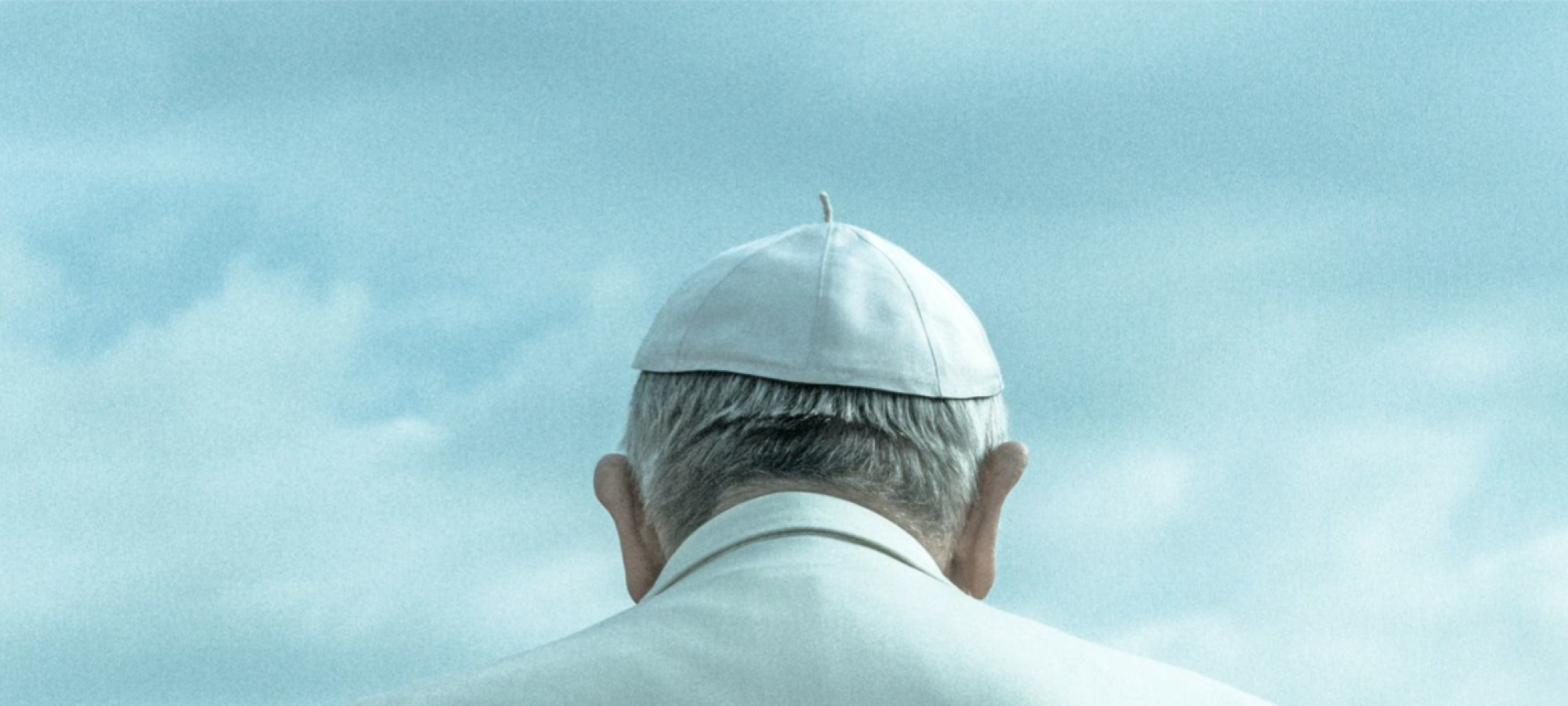
Pope Francis has returned to the Lord: A statement from Campion Hall
The Campion Hall community joins the global Church in mourning the death of Pope Francis.
Pope Francis has been a profound source of inspiration for our work at Campion Hall shaping our academic and spiritual life most notably through the foundation of the Laudato Si Research Institute and also through research and teaching on issues of forced migration and on Ignatian leadership.
Pope Francis was the first Jesuit Pope, and the practices and traditions of Ignatian spirituality were at the heart of his way of leading the worldwide Catholic Church. His formation within the Society of Jesus instilled in him a gift of discernment, a sense of closeness to God, and a deep commitment to serving the marginalised and the voiceless, which he embodied throughout his ministry.
Revd Dr Nicholas Austin, SJ, Master of Campion Hall has reflected:
"With so many others, we share sadness at the death of Pope Francis but also a deep gratitude for his life and leadership. At Campion Hall, we will continue to be inspired by his commitment to the most vulnerable members of our society, especially the forcibly displaced, his prophetic call to respond to the 'cry of the earth and of the poor' by caring together for our common home, and his example of servant leadership."
Professor Celia Deane-Drummond, Senior Research Fellow at Campion Hall, has reflected on how the Pope’s landmark encyclical, Laudato Si’: On Care for Our Common Home, became the inspiration of the transdisciplinary work undertaken by the Laudato Si Research Institute which is based at the Hall.
“LSRI has been rooted in the pope’s vision of integral ecology, a transdisciplinary approach that addresses social and ecological issues of equality and climate breakdown through going to the moral and spiritual as well as the practical roots of the poly crisis. Integral ecology, in opposition to the dominant technocratic paradigm, offers a positive holistic vision of humanity in right relationships with God, humanity and the natural world. His integral ecology approach has led to positive change within climate activism in three ways: at global climate summits, in advocacy for Indigenous peoples, and by inspiring activism.”
Dr Austen Ivereigh, Fellow in Contemporary Church History at Campion Hall, knew the Pope both as his biographer and as co-author with him of Let Us Dream: The Path to a Better Future. Recently he published First Belong to God: On Retreat with Pope Francis, eight-day spiritual exercises which draw on Francis’s spiritual guidance as the first Jesuit pope, and to which Pope Francis wrote the Foreword. Ivereigh has been heavily involved in what is arguably Pope Francis’s greatest legacy, the Synod on Synodality, which was the theme of a Campion Hall conference in March 2022, and has been a regular commentator on the pontificate in UK and other media. He is currently retained by the BBC in Rome as a commentator in Rome for the funeral of Francis and the election of his successor.
Reflecting on the legacy of Pope Francis, Ivereigh has argued in lectures and talks that Francis has been the first pope of a new, global era of Catholicism, for which his pontificate has been preparing — at times not without difficulty — the Church. Ivereigh argues that key to the Church’s mission in this new era is a way of being that better reflects what Francis calls “God’s style” of relating to his creatures: open, dialogical, discerning, merciful, unafraid to live in the tension of diversity. Synodality, Ivereigh argues, is the gift Francis has left us to embrace that conversion:
"In an increasingly fractured world,” Austen Ivereigh says, “Francis's vision of a Church that performs 'God’s style' is a gift we will be unwrapping long into the future.”
As we give thanks for the life and ministry of Pope Francis, we are reminded of his call to live out our faith through service, contemplation, and justice. May he rest in peace and may perpetual light shine upon him.
Photo by Nacho Arteaga on Unsplash

